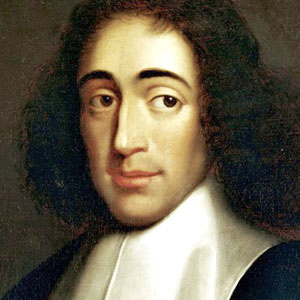
Baruch Spinoza (1632 – 1677) was a Dutch philosopher who is commonly associated with the methodology of rationalism. He grew up in Amsterdam, from which he was later excommunicated, likely due to the radical nature of his ideas. He became quite well known for his skill as an optical lens grinder, and for his microscope and telescope lens designs. His preference was to live, write, and study in private, but he did correspond with quite a number of people. His last years were spent at The Hague, where he wrote his most famous work Ethics, which is written in the style of a geometrical treatise.

Quotes by Baruch Spinoza…
If the way which, as I have shown, leads hither seems very difficult, it can nevertheless be found.
So long, therefore, as we are not agitated by passions which are contrary to our nature, so long is the power of the soil by which it seeks to understand things not impeded; and so long, therefore, has it the power of forming clear and distinct ideas.
A singular strength of mind is therefore required to enable a man to live among others consistently with his own ideas and convictions, to be master of himself, and not fall into the habits or exhibit the same passions as those with whom he associates.
There is nothing more useful to man than that which most agrees with his own nature.
I have earnestly endeavoured not to laugh at human actions, nor to lament them, but to understand them.
Those who are believed to be the most mild and humble are usually the most ambitious and envious.
It follows absolutely, that one who uses his understanding correctly, can fall a prey to no sorrow.
I saw that all things which occasioned me any anxiety or fear had in themselves nothing of good or evil, except in so far as the mind was moved by them.
He who would distinguish the true from the false must have a clear idea of what is true and false.
From this kind of knowledge arises the most perfect satisfaction and contentment.
